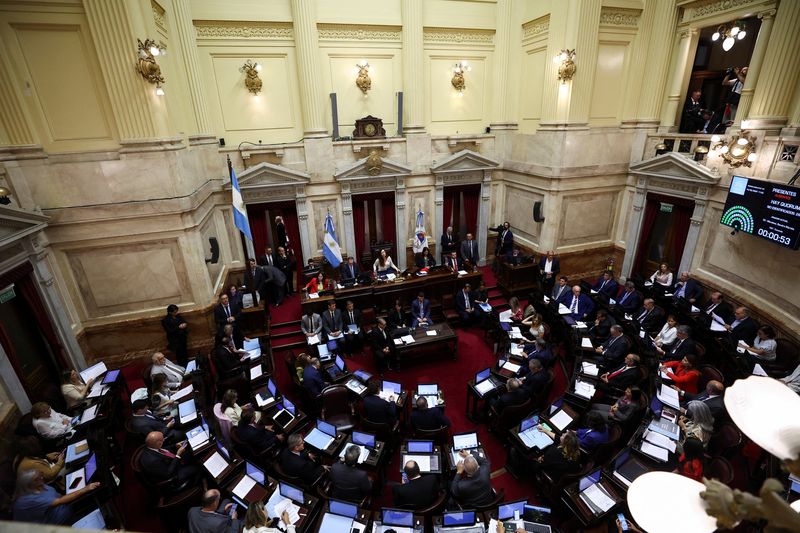BUENOS AIRES (Reuters) -Argentina's Senate on Thursday voted to reject President Javier Milei's sprawling "mega decree" of economic reforms, a major blow to the libertarian leader's austerity agenda as he tries to remedy the country's ailing economy.
Milei, an outsider economist whose party has a minority in Congress, took office in December and used his powers of presidential decree to roll out measures ranging from privatizations to labor reforms.
The decree, which originally contained over 600 articles, was rejected in a vote of 42-25, with four abstentions, and can only be definitively discarded if it is also rejected by Argentina's lower house.
The president's party has a minority in both chambers.
Thursday's vote dealt a second legislative defeat after lawmakers last month put the brakes on a separate proposed package of sweeping reforms.
Opposition Senator Martin Lousteau said his vote against the decree on Thursday was "very simple: It is unconstitutional."

The December decree, issued just days into the new president's government, kicked off Milei's shock treatment approach to Argentina's chronic economic ills, a plan that included his devaluation of the local peso by more than 50%.
The government's measures have managed to move the country's fiscal and trade imbalances in a favorable direction, while also taking a toll on much of the population. Annual inflation surged to 276% last month, with poverty levels climbing to 57% of the population.